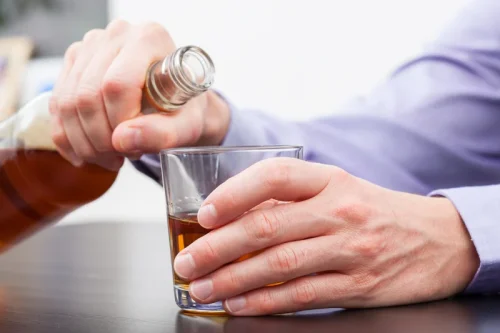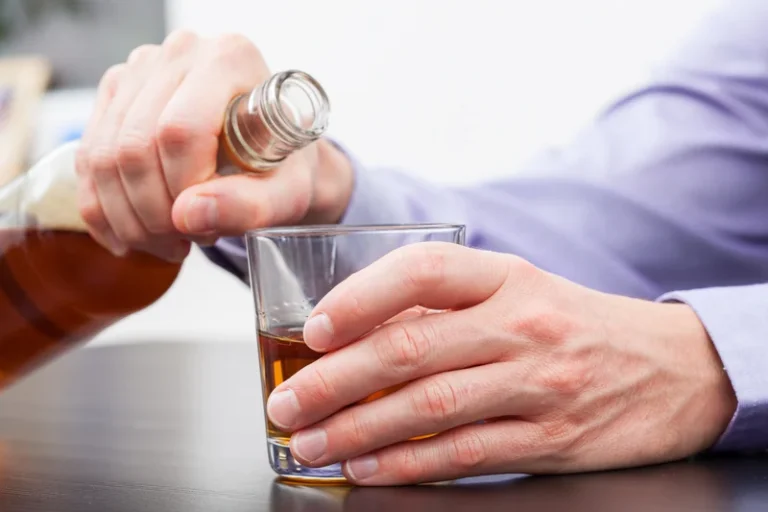The 6 Stages of Alcohol Intoxication: When is it Too Much?

Their heart rate has likely slowed as well, and their body temperature is dropping Substance abuse dangerously low. As a bartender or alcohol server, it’s your responsibility to stop service once you suspect that someone is over their limit. In the United States, people caught driving with a BAC of 0.08% or higher are arrested for driving under the influence. This stage is usually not counted as there is too little alcohol in the system to have noticeable effects.
Stage 4: Confusion
Kelly brings empathy to an underserved population and her clients share that they feel listened to without judgment. It should not in which stage of intoxication does an individual become aggressive or withdrawn and sleepy be used in place of the advice of your physician or other qualified healthcare provider. It should not be used in place of the advice of your physician or other qualified healthcare providers.
Understanding the Stages of Alcohol Intoxication

When someone reaches this stage, they are no longer legally able to drive. If you’re interested in learning more about these skills and tools, or are considered enrolling in our alcohol rehab, give us a call at . Those around the person will likely notice that they are visibly drunk.

Stages of Alcohol Intoxication: Symptoms & Treatment
If your loved one is still conscious, see if you can get him to lie down on his side or drink a little water. If your friend has lost consciousness, it’s necessary to get her onto her side to prevent her from potentially choking on vomit, which can lead to death. The level of intoxication depends on how much alcohol has been consumed. Knowing the 5 Stages of Intoxication can help alcohol servers and bartenders count drinks and effectively observe customer behavior. Because the amount of alcohol needed to reach various states of intoxication can vary depending on the individual, what might be a fatal dose for one person may not be for another. But if a person drinks very quickly, they can get to this stage before long.
The Six Stages of Alcohol Intoxication: When is it too much?
It is calculated in grams per 100 milliliters of blood, so a BAC of 0.08 means your blood is 0.08% alcohol by volume. Alcohol is initially absorbed directly through the walls of the stomach and the small intestine, goes into the bloodstream and travels throughout the body including the brain. It reaches your brain in about five minutes and in about 10 minutes it changes the way your brain processes information. Getting professional medical help is necessary in situations of extreme alcohol intoxication. That’s because paramedics, physicians, and other medical staff can administer certain treatments to help mitigate the effects of intoxication.
- These effects typically start to occur when alcohol reaches a certain percentage of a person’s bloodstream, known as their blood alcohol content (BAC).
- These symptoms often occur in stages, depending on how intoxicated a person is.
- Behavioral Signs In the Euphoria Stage, a person may show lowered inhibitions and become more chatty and self-confident.
- At this stage, the risk of alcohol-related accidents and poor judgment increases substantially.
- Because the amount of alcohol needed to reach various states of intoxication can vary depending on the individual, what might be a fatal dose for one person may not be for another.
- By U.S. standards, a standard drink is 12 ounces of 5% alcohol by volume (ABV) beer, 1 ounce of 40% ABV spirits, or 5 ounces of 12% ABV wine.

Signs of impaired judgement can include becoming more careless with money, making irrational statements and showing difficulty in coordinating precise movements. Moving Mountains Recovery, based in Randolph, New Jersey, offers a comprehensive and unique approach to addiction recovery. Own Your Limits is a Defense Department (DOD) education campaign, aligned to the Defense Health Agency, for the U.S. military. The mission of the campaign is to help Service members learn to drink responsibly, if they choose to drink alcohol. Intoxication can also lead to choking due to vomit, extreme dehydration, circulatory issues, seizures, and even brain damage.
- At this stage, many people enjoy the social and relaxed feelings alcohol brings.
- The more alcohol a person consumes the more intoxicated and impaired they become.
- Mild intoxication is mostly referred to by slang terms such as tipsy or buzzed.
- As alcohol consumption continues, individuals enter the stage of euphoria, characterized by a BAC of approximately 0.03% to 0.12%.
- We base differences on several things, like genetics, body weight, frequency of intoxication, overall general health, and more.
- We can avoid alcohol poisoning by drinking in moderation and drinking a fair amount of water between drinks.
- Alcohol affects the brain and nervous system by altering the balance of neurotransmitters, which are chemicals that transmit signals between nerve cells.
A qualified, experienced treatment facility such as Casa Palmera offers exceptional recovery programs that can help your loved one work towards sobriety. People who have developed tolerance to alcohol may also be tolerant to other drugs that slow brain function, such as barbiturates and benzodiazepines. With the right people and mindset, people can overcome any addiction. That’s why if any of your loved ones have this problem, you can check out Our Arizona Drug and Alcohol Rehab Centers for substance and alcohol abuse rehabilitation programs. When someone has had quite what is alcoholism a few drinks, the symptoms of the excitement stage become intensified. People may have exaggerated emotional episodes, and their balance may be all but gone.
For severe cases of alcohol intoxication, your loved one may be kept in the hospital for observation. Even after being released, his body will still need to recover from the incident—it may affect mood, appetite, and brain function. The long-term health consequences of intoxication can be significant and far-reaching, emphasizing the importance of responsible drinking practices and seeking help if drinking becomes a problem. By recognizing the potential long-term health consequences of intoxication, individuals can take steps to protect their health and well-being, and reduce their risk of adverse outcomes.
I want to get healthier
- Alcohol is initially absorbed directly through the walls of the stomach and the small intestine, goes into the bloodstream and travels throughout the body including the brain.
- Coordination and balance are severely affected, making walking and performing simple tasks challenging.
- If you’re drinking too much or have reached the later stages of intoxication, you should get help as soon as possible.
- An intoxicated person at this stage may show slowed reaction times, reduced memory, blurred vision, and a lack of coordination.
Partial hospitalization programs (PHPs) provide similar services to inpatient programs. Services include medical care, behavioral therapy, and support groups, along with other customized therapies. Reaching the Stupor Stage can be very dangerous and even fatal for a person. At this stage, 1 out of every 400 milliliters of blood in the body is alcohol.
They do not know what is going on and cannot remember what happens, making it very dangerous. Blood sugar levels and BAC can be checked with a simple urine or blood test. Although there are people who have survived at this stage, it’s rare. By U.S. standards, a standard drink is 12 ounces of 5% alcohol by volume (ABV) beer, 1 ounce of 40% ABV spirits, or 5 ounces of 12% ABV wine.
